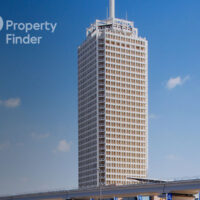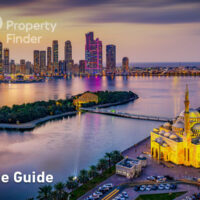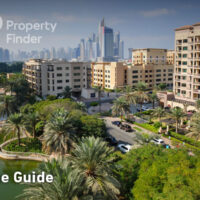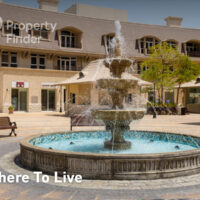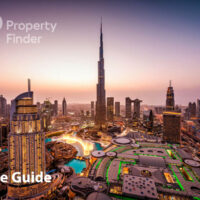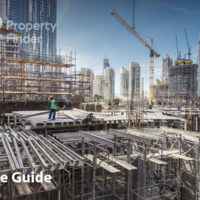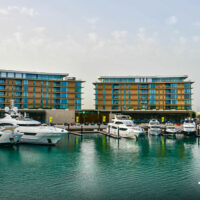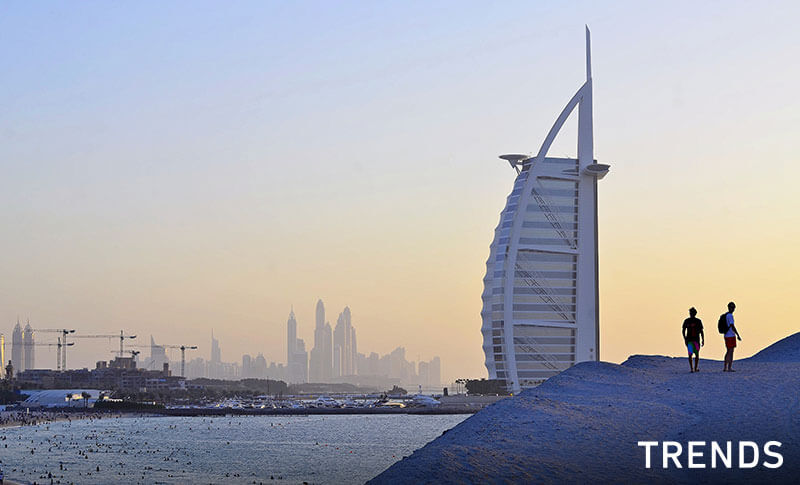
More steps need to be taken to stimulate demand for real estate

MICHAEL LUNJEVICH
Partner, Head of Commercial and Property Practice, Hadef & Partners
I have lived in Dubai for 14 ½ years. There has been a lot of change, but the real estate market growth boom/bust cycles have had the biggest influence. The Dubai real estate market is so important to the wider Dubai economy and everyone is affected by it. The biggest challenge in this sector is getting all stakeholders to talk about the challenges openly. I love the diversity of the sector. Diverse products, diverse people and cultures, and there is such a big opportunity right now for some quick wins and with solid planning for the long term, things will work out fine.
There has been a lot of talk about Dubai’s property market suffering from oversupply, and the Dubai government has recently formed the Higher Real Estate Planning Committee tasked with moderating approvals for new developments, which is a sign that oversupply is recognised and steps are being taken to address supply dynamics.
Right now, prices are low and there is an abundance of properties available. Dubai is the most attractive investment hub in the region and investors can enjoy tax-free returns. However, this has not translated into an influx of investors wanting to capitalise on this unique opportunity.
This is because supply is only part of the equation for market performance. A large part is also attributable to demand. There has been demand side stimulus such as extended visas, streamlined processes and fee moratoriums. However, it has largely been developers themselves stimulating demand through longer payment plans, service charge waivers, additional benefits packages and other innovative sales techniques such as lease-to-own and so on.
The current oversupply has shown that this internal market is notcapable of absorbing the current supply, and accordingly it is a necessity to attract new investors to the Dubai property market.
However, such measures have not turned the market yet. So, the question arises, what other ammunition is there in the tool kit to turn the tide and kickstart another Dubai growth cycle?
Below is my take on the more critical elements required to stimulate demand for real estate so that it more closely aligns with the supply side aspirations of developers in Dubai:
Overseas investors – nice to have or necessity?
On a recent trip abroad, the children of a close friend came up with the idea of making lemonade and selling it to make money. When we explained that they would need to put a stand out in the front of the house to sell it, one of the children innocently asked: “Why? We can sell it to our family, so we don’t need a stand?”
I was tasked with answering that question and as I explained to the child that to truly increase the wealth of the household requires them to sell lemonade to people outside the household, it occurred to me that this same fundamental principle applies on a much bigger scale to the Dubai property market. If only people within Dubai invest, this circulates money but it does not expand the collective wealth. This highlights the importance of foreign direct investment (FDI) to the region which was recognised recently when several high-profile regional stakeholders discussed FDI at the 18th Arab Businessmen and Investors Conference.
The local market can only generate so much organic internal growth. The current oversupply has shown that this internal market is not capable of absorbing the current supply, and accordingly it is a necessity to attract new investors to the Dubai property market.
More certainty
Investing in real estate is a long-term play and requires significant money to be tied up in an illiquid investment for a long period of time. To do this, investors need certainty that the same rules, laws and principles that apply at the
time they make decisions to invest will continue to apply throughout the term of the investment.
This is especially the case when entering a foreign market, and many stakeholders have expressed a need for greater certainty of regulation and enforceability of legal rights regarding property investments. For example, the recent release of the new Jointly Owned Property (JOP) Law repealed the 2007 JOP Law. The 2007 JOP Law was a good law but not widely enforced and some will say the new JOP law was a necessity because the previous law wasn’t working, however, others might argue this was due to lack of enforcement and the new JOP law has changed the playing field significantly. The new JOP law may ultimately turn out to be great for the market but it does not change the optics that the rules can change significantly and this creates uncertainty.
Bank accounts
Investments are only good if they generate returns, and bank accounts are a necessity of life, not least because of anti-money laundering concerns, to collect those returns and pay operational costs, as well as to repatriate or reinvest profits.
Foreign investors can face problems opening local bank accounts in the UAE. Many banks only allow citizens or residents with a visa and Emirates ID to open fully-functional bank accounts. There are limited options for non-residents to open accounts and they will not be issued a cheque book, which is a logistical issue given local market practice is still heavily dependent on cheques. Some banks will also not entertain special purpose companies such as Jafza off-shore companies who have no other business presence in the UAE aside from owning real estate. Without a relationship with a bank, cash investors are unable to tender payment for real estate due to the size of the investment and local requirements for payments to be by manager’s cheques.
The issue of empowering non-residents to open fully-functional accounts without going through the process and expense of getting a visa, and also to allow non-resident companies to open accounts is an easy issue to fix. However, a fix is needed within the banks’ processes to allow this to happen and to encourage foreign investors to invest.
Mortgage finance
Bank finance for non-residents can be very hard to come by. Even residents are subject to mortgage caps and the UAE Central Bank imposed LTV (loan-to-value) ratios. This, in turn, makes the UAE’s property market less appealing if only cashed-up foreign investors have an easy entry to the market. This takes a significant portion of the foreign investors out of the running even if they would love to invest in Dubai.
It is prudent fiscal policy for the Central Bank to limit the degree of exposure local banks have to the real estate market. However, without viable alternative sources of finance, such as finance houses, mezzanine funds and perhaps even foreign domiciled banks, then the combination of LTV restrictions and restrictive finance offerings for foreign investors is having a negative impact on demand.
I believe that in spite of the softened market, there remains a strong demand for access to cash secured by bricks and mortar that would fall outside the regulated lending criteria and current local bank lending policies. However, there remain hurdles for this part of the market because such lenders cannot presently perfect security through registered mortgages.
Wider flexibility on property ownership structures
Some of the most prolific and deep-pocketed property investors face significant hurdles when seeking to invest in the UAE. Foreign companies, foreign real estate investment trusts, family trusts, sovereign funds and other high-net-worth groups with complex ultimate ownership structures can face significant hurdles when seeking to register real estate interests in the UAE.
Investors who routinely use such companies for investment purposes represent a significant proportion of investors in most mature jurisdictions. Therefore, paving the way for easier investment for such entities in the UAE and recognition of complex structures for registration purposes may increase the appeal of Dubai to such investors.
In addition, the insistence of some free zones to require investors wanting to let their properties do so through the authority for a fee, or to obtain specific asset management licences for further fees is also an added cost which lowers returns, and can therefore negatively impact demand.
The mire of personal liability for cheques
The local real estate market still depends heavily on cheques for payment of rent and for sales made with prolonged payment plans. Sellers prefer future payments to be made by way of post-dated cheques so they have the option of raising criminal complaints and fast track civil proceedings against defaulters.
In recent years, the UAE has softened its stance on bounced cheques, with fines being levied rather than jail time for dishonoured cheques of lower amounts, and a new insolvency law will likely allow debtors to suspend criminal proceedings in certain circumstances.
Nonetheless, investors can risk criminal liability for cash flow issues, which is not a threat investors face in many other countries that Dubai is competing with for the investor dollar. Criminal penalties can therefore serve as a deterrent to potential investors without adding any direct benefit for security of payment. Putting an investor under criminal penalty does little to improve his ability to repay, and ordinarily a security interest in the property would provide a better remedy. However, attachments over property can be notoriously difficult to obtain, and getting a remedy through the civil courts can take years and cost hundreds of thousands of dirhams in unrecoverable costs. Faster and more cost-effective legal recourse might provide faster and more effective civil remedies, which might ultimately render criminal processes redundant except in the most severe of situations.
Criminalising a default has seen defaulters flee the country to avoid imprisonment, which ultimately means the investor is lost to the economy and collection of the debt is made far more difficult. Providing a mechanism to allow defaulters to remain in the UAE to work through tough times and refinance or pay off debts may reduce the level of bad debt and also ensure investors continue to contribute to the wider economy.
Faster and more effective legal relief
As discussed above, civil remedies can take years and generally legal costs for lawyer’s fees are not recoverable. This can potentially lead to people hiding behind the cost and time to enforce legal recovery to flout the law or extract unfair compromises, and many good cases are not resolved simply because a complainant cannot fund the litigation costs. The expansion of the small claims courts principles utilised in the DIFC and the inclusion of similar principle in the Dubai Courts, operated in English which is the predominant business language, might go a long way to alleviate some of these issues. In addition, a revamp of legal cost awards and the benchmarking of legal costs at rates that reflect market reality might also deter respondents with poor cases from defending them frivolously.
Permanent residency
The first point to make is that permanent residency is very different to citizenship. There have been recent moves to promote the so called “golden 10 year visa”, which is a great move. However, a recent Gulf News insert advertising citizenship and permanent residency in countries like Canada, Australia, the UK and Caribbean countries, was enlightening. In almost all the testimonials, people talked about moving to these destinations to provide greater certainty and a more permanent base for their families.
This suggested that some people, some of them talented people, don’t see the UAE as a permanent base for their families. While a 10-year visa is a great development, it does not necessarily provide a true long-term solution for families.
Conclusion
Oversupply is certainly an issue high on the agenda in Dubai. However, quick solutions for property market downturns are very hard to find, and short-term fixes usually only bring short-term relief. If we only fix the supply issue, then we are missing a tremendous opportunity to also stimulate demand and create positive growth. Since real estate investing is a long-term investment product, it requires a more holistic long-term solution to provide more sustained long-term growth.
There are, as discussed above, plenty of opportunities to provide sustainable solutions for almost all parts of the investment cycle (such as buying, holding, maintaining, divesting and also dispute resolution). For example, allowing more diversified ownership structures, especially trusts, and empowering those entities and foreign investors to open and operate bank accounts in the UAE ought to be low hanging fruit. Allowing entities that are not regulated by the central bank to take a security interest in property, or to register caveats to protect their rights ought to also be relatively simple to implement.
However, longer term solutions with wider socio-economic impact, such as permanent residency, new faster small claims courts and removing the criminality of bounced cheques, will likely take longer to work their way through the system, and if they do become a reality, then the future of the Dubai real estate market could be very bright indeed.



